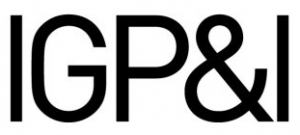
With the FuelEU regulation coming into force on 1st January, BIMCO has had the daunting task of swiftly converting a complicated regulation into a simple and balanced clause Owners and Charterers can easily understand and adopt.
Written by
Published 19 December 2024
BIMCO’s long-awaited FuelEU clause has now been published. This is a helpful and welcome starting point for Owners and Charterers to agree how calculations and costs will be dealt with under their charterparties. However, as it does not cover everything in detail Owners and Charterers should be mindful of certain issues when incorporating this clause wholesale into their charterparties. This article takes a closer at these issues, and where parties may wish to consider adding to or amending the standard wording.
Alternative fuels
Sub-clause (c) is intended to enable Charterers to supply biofuels or other alternative fuels to the vessel to comply with FuelEU requirements. Parties should remember that any agreement to supply biofuels, or any other compliance technologies, may require corresponding amendments to speed and performance warranties, bunker specifications and potentially provisions for on-board fuel trials, tank cleaning / preparation as well as agreement on the time and cost for these. A good starting place for agreement to burn alternative fuels is class and engine manufacturers’ comments whose approvals are likely to be required from Owners’ H&M insurers.
Reporting of Compliance Balance on delivery
Sub-clause (a) requires Owners to inform Charterers upon delivery of the Vessel’s compliance balance for the previous two reporting periods. ‘Reporting period’ is defined in the clause as from 1 January to 31 December.
This transparency is necessary to allow Charterers to understand how any penalties may be calculated in future years. Under the FuelEU regulation, a negative compliance balance in consecutive years will increase the size of the penalty payable by the vessel – 10% for the first year, 20% for the following year and so on. So a Charterer needs clear information on what previous balances have been to know what their exposure may be.
If a Charterer takes over a Vessel which had a negative compliance balance in the previous year under the previous charter, and then proceeds to register a negative compliance again, the Vessel will be left with a 10% extra (‘multiplier’) which arises partly because of a previous charterers’ performance. Ideally therefore a Charterer taking over such a ship will seek to negotiate terms so that the effect of a multiplier is not for their account.
Calculation of Compliance Balance
The default provision under sub-clause (d) is that Owners will notify Charterers of the aggregated compliance balance within the first 15 days after each relevant voyage. Where this compliance balance is in the negative (i.e. the vessel is operating above the GHG limit and thereby incurring a penalty), Owners’ calculation must be ‘independently validated’ in order to be presented to Charterers. The explanatory notes provide that this validation can be done by any service provider, but there could be disputes over whether Owners' choice of validator will always be considered "independent". Given this clause requires Owners’ calculations to be verified in order to trigger any payment, Owners should ensure that this is workable. Parties may wish to include provision for how the cost of any validation will be apportioned between the parties (is the cost one that arises from Charterers' trading decisions, or simply an Owners' running cost?).
In situations where the vessel is sub-chartered, Charterers may wish to agree that any liabilities calculated by Owners, especially when verified, are fixed and binding in order not to leave Charterers in a difficult position with their sub-charterers.
Surcharge payable
Under sub-clause (d) a surcharge becomes due from Charterers when the vessel operates in the EU above the FuelEU GHG emission limits. The surcharge reflects the cost of the penalty that the vessel becomes liable for as a result of this. The parties are free to agree when payment for any surcharge is payable by Charterers to Owners. Under sub-clause (f), this can be paid on a monthly or per voyage basis or upon redelivery, but no later than 7th June of the following year, by which time Owners will have had their final Fuel EU liability calculated and verified.
Payment terms and deadlines can be negotiated , but Owners should be aware that leaving payment to be calculated with a final hire statement will potentially expose Owners to a significant and unsecured sum. A Charterer may argue that they should not have to put Owners in funds to cover penalties unless/until they are actually confirmed and paid, but there are no other areas where Owners offer time-charterers significant credit in this way. In this regard, sub-clause (g) provides rules for possible reimbursement of a surcharge from Owners to Charterers with an aim to deal with this concern. At the very least, a Charterer should always seek to ensure that any payment arranged under a sub-charter will match that which has been agreed with Owners.
Where the parties opt for a monthly or per voyage payment, the BIMCO clause gives Owners the right to suspend service under the charterparty where the surcharge has not been paid. This is similar to the suspension of performance provision under the BIMCO EU-ETS clause which some Charterers were reluctant to include in their contracts. If a Charterer can agree at least to defer payment until payment of final hire, this will remove the threat of any suspension of performance.
Banking / pooling
Under sub-clause (i), Charterers have the right to instruct the Owners to bank or pool any Compliance Balance under the BIMCO clause but only where a charter covers a complete reporting period – meaning that it runs from 1 January to 31 December. So a charterparty entered into from February 2025 – November 2026 will not, without amendment, entitle Charterers to bank or pool any credit. This is presumably to reflect the fact that Owners (and disponent owners) need to be careful not to grant Charterers conflicting rights about who decides about pooling and banking because in each calendar year, only one party can have the right to make such choices.
If Charterers qualify for banking / pooling, Owners have to follow Charterers’ instructions to do so. If Owners wish to reserve the right to decline pooling (in the event of a sanctions risk, for example) Owners would need to expressly reserve the right to do so in any clause. Whilst not set out, it is presumably implied that Charterers will provide Owners with all the necessary information allowing for banking / pooling; albeit it is made clear that all banking / pooling costs and liabilities will be at Charterers’ cost.
It is still unclear how pooling agreements will work in practice, and it is not clear under the BIMCO clause if or how Owners will reimburse Charterers in the event that Owners receive payment for pooling a positive compliance balance, or if recoveries would go to the charterer directly. This is another issue which may need some additional wording or agreement. BIMCO’s explanatory notes provide that Charterers should obtain any benefits from the pool, but express provision for this in the clause is seemingly absent.
If the parties expect the vessel to generate significant FuelEU compliance surplus then we recommend that careful thought is given to how it will be handled (and likely pooled) as the BIMCO clause contains very little detail on this, and the Charterers would likely want more certainty over what their rights are going to be.
If Owners wish to enter vessels into a pool as part of their own separate pooling strategy, Owners will need to amend the provision in the BIMCO clause that gives Charterers the right to make the decisions on pooling. Such amendment would need to deal with who bears the cost of pooling for compliance purposes and if / how Charterers repay it, and what happens to funds generated from pooling compliance balances.
Borrowing
Borrowing is only permissible where the charter period encompasses at least two consecutive reporting periods (sub-clause (l)). That is, the charter must for example run from 1 January 2025 – 31 December 2026 in order for Charterers to be able to request that Owners borrow in 2026 for the preceding year’s negative compliance. Charterers are not entitled to borrow in the final year of a charter, which should give Owners some time in the final year to take action to deal with any borrowed deficit.
Owners may want to include restrictions on the value of what can be borrowed, so that if a deficit goes above a certain limit there are no rights to borrow, even if borrowing is currently limited under the regulation to 2%.
Positive compliance balance
If a charterparty runs for several years and the vessel generates positive compliance balances in the early years then it is easy to understand that the Charterers would want to receive the full benefit of them, whether by banking the credit for use in future years, or by pooling the credit to realize their value. However, what should happen to credits that are accrued in partial years, e.g. in the first six months of a year when the vessel is re-delivered by the Charterer in June 2027? If that Charterer is given the right to direct what happens to credits accrued during the first six months, then it will prevent the subsequent charterer from being able to say what happens to credits earned under the last six months of the year. The same concern would arise for a charterparty that runs for only a few months, but where a FuelEU credit may be generated.
BIMCO's solution to this is contained in sub-clause (m), but it will only apply if the parties agree on a value to be entered. Under this sub-clause, the Owners will pay the Charterers for the credit at a pre-agreed price, up to a fixed cap. The difficulty for Owners with this arrangement is that they are likely to have to finance the cost of the refund before its actual value is known, and before any funds are realized. Correspondingly, Charterers may not like to receive less than the full value of the credit they have earned. One, more complex, alternative, would be for the full actual value of the credit to be passed to Charterers when it is realized.
Conclusion
The BIMCO clause provides a starting point for how the various mechanisms of the FuelEU regulation could work under a charterparty. Given that the industry is still familiarizing itself with how things will work in practice, the BIMCO clause is helpful for negotiations but it is not a panacea for all parties. There will still need to be some careful thought on how this clause should be amended in order to fit different parties’ needs and their plans for how to use vessels operating in the EU.
The author thanks colleagues – Louis Shepherd, Neil Henderson, Satoru Yamashita and James Hawes for their contributions to this article.






